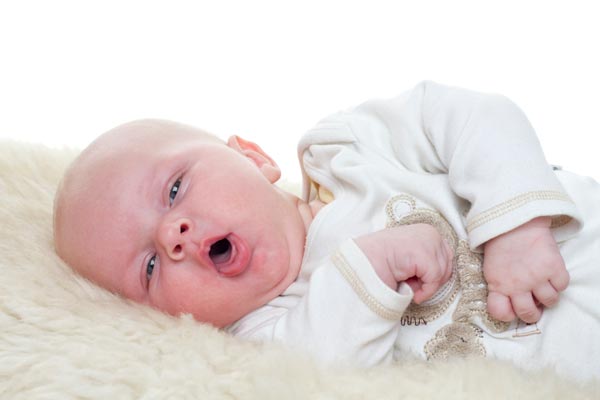Respiratory Syncytial Virus (RSV)
What is respiratory syncytial virus (RSV)?
 Respiratory Syncytial Virus (RSV) is a respiratory virus that infects the lungs and breathing passages. The virus is highly contagious, causes upper respiratory infections - similar to the common cold - and can lead to lower respiratory infections, like pneumonia and bronchiolitis (inflammation of the small airways of the lungs).
Respiratory Syncytial Virus (RSV) is a respiratory virus that infects the lungs and breathing passages. The virus is highly contagious, causes upper respiratory infections - similar to the common cold - and can lead to lower respiratory infections, like pneumonia and bronchiolitis (inflammation of the small airways of the lungs).
For people in good health, an RSV infection usually runs its course in one or two weeks without medical treatment. However, in high-risk populations, including infants and young children, the virus can cause serious illness. It's the most common cause of bronchiolitis and pneumonia in babies. It is an illness that often occurs in yearly outbreaks in communities, school classrooms and day care centers. In the United States, RSV is more common in winter and early spring months.
How can RSV be prevented?
To reduce the risk for RSV and other viral infections, Jon Roberts, MD, pediatric pulmonologist at Driscoll Children's Hospital, says there are steps that can be taken to help prevent the spread of RSV.
"Infants should not be exposed to smoke, should avoid high-volume child care settings during their first winter season and avoid contact with people who are sick," says Dr. Roberts. He also recommends cleaning hands with alcohol-based hand cleaners before and after touching babies with RSV.
The American Academy of Pediatrics (AAP) recommends that babies at high risk for RSV receive a medication called palivizumab. Ask your child's health care provider if your child is at high risk for RSV. If so, ask about monthly injections during RSV season to help prevent RSV.
What causes RSV?
RSV is spread from respiratory secretions through close contact with infected people or contact with contaminated surfaces or objects. Infection can occur when infectious material contacts mucous membranes of the eyes, mouth, or nose, and possibly through the inhalation of droplets generated by a sneeze or cough. The incubation period (time from exposure to symptoms) is about two to five days.
Who is affected by RSV?
RSV can affect a person of any age, although severe symptoms usually only occur in very young infants. Most babies have been infected at least once by the time they are two years old. Babies can also be re-infected with the virus. Recurrence throughout life is common. Babies born prematurely or with heart, lung, or immune system diseases are at increased risk of developing more severe illness.
Why is RSV a concern?
"In babies at increased risk, infection with the virus can lead to severe respiratory illness and pneumonia, and may become life-threatening," says Dr. Roberts. "RSV in infancy may be related to development of asthma later in childhood."
What are the symptoms of RSV?
The early phase of RSV in infants and young children is often mild, somewhat like a cold. In children younger than three, the disease may progress into the lower airways and cause coughing and wheezing. In some, the infection progresses to a severe respiratory disease requiring hospitalization to help the child breathe.
The following are the most common symptoms of RSV. However, each baby may experience symptoms differently. Symptoms may include:
-
Runny nose
-
Fever
-
Cough
-
Apnea (periods without breathing)
-
Trouble eating, drinking, or swallowing
-
Wheezing
-
Flaring of the nostrils or straining of the chest or stomach while breathing
-
Breathing faster than usual, or trouble breathing
-
Turning blue around the lips and fingertips
The symptoms of RSV may resemble other conditions or medical problems. Always consult your baby's doctor for a diagnosis.
How is RSV diagnosed?
Diagnosis is sometimes difficult because the symptoms of RSV can resemble other infections. Illness in other family members, other babies in the hospital nursery, or the time of year may provide clues. In addition to a complete medical history and physical examination of your child, a test (nasal swab or nasal wash) of the baby's respiratory secretions may show the presence of a virus.
What is the treatment for RSV?
Specific treatment for RSV will be determined by your baby's doctor based on:
-
Your baby's age, overall health, and medical history
-
The extent of the condition
-
Your baby's tolerance for specific medications, procedures, or therapies
-
Expectations for the course of the condition
-
Your opinion or preference
There are no medications used to treat the virus itself. Care of a baby with RSV involves treating the effects of the virus on the respiratory system. Because a virus causes the illness, antibiotics are not useful, unless there is also a bacterial infection. Treatment may include:
Children with very serious breathing problems are intubated and put on ventilators (breathing tubes are inserted and attached to machines that assist with breathing).